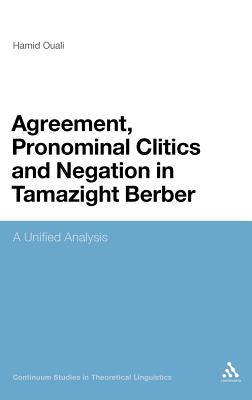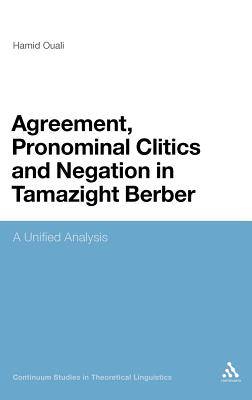
- Retrait gratuit dans votre magasin Club
- 7.000.000 titres dans notre catalogue
- Payer en toute sécurité
- Toujours un magasin près de chez vous
- Retrait gratuit dans votre magasin Club
- 7.000.0000 titres dans notre catalogue
- Payer en toute sécurité
- Toujours un magasin près de chez vous
390,45 €
+ 780 points
Format
Description
This book presents a study of various important aspects of Tamazight Berber syntax within the generative tradition. Work on Berber linguistics from a generative perspective remains in many ways uncharted territory. There has been hardly any published research on this language and its different dialects, especially in English -- this book fills some of these gaps and lays down the foundations for further research.
Ouali looks at three seemingly disparate ranges of syntactic phenomena, namely Subject-verb agreement, Clitic-doubling and Negative Concord. These phenomena have received different analytical treatments, but Ouali proposes that they are all forms of agreement derived under the same Chomskian 'Agree' mechanism. The book addresses a fundamental question in the ongoing debate in recent Minimalism with regard to how subject-verb agreement is obtained and proposes a new analysis of the so-called Anti-Agreement Effect. It will be of interest to all syntacticians and to researchers in Afroasiatic languages.Spécifications
Parties prenantes
- Auteur(s) :
- Editeur:
Contenu
- Nombre de pages :
- 208
- Langue:
- Anglais
- Collection :
Caractéristiques
- EAN:
- 9781441101273
- Date de parution :
- 17-03-11
- Format:
- Livre relié
- Format numérique:
- Genaaid
- Dimensions :
- 155 mm x 236 mm
- Poids :
- 453 g

Les avis
Nous publions uniquement les avis qui respectent les conditions requises. Consultez nos conditions pour les avis.






